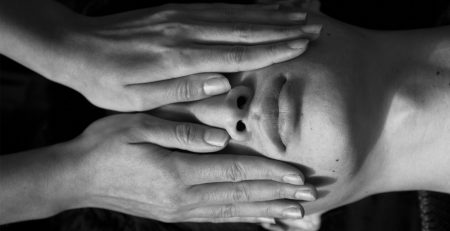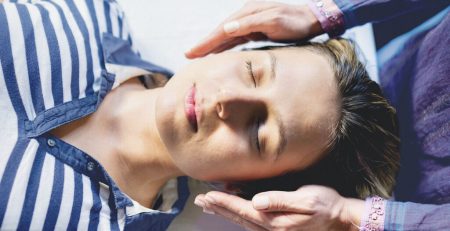What Is Reiki Therapy?
What Is Reiki?
Reiki therapy is based on an Eastern belief that vital energy flows through your body. The idea is that a Reiki practitioner uses gentle touch — or places their hands just above your body — to help guide this energy in a way that promotes balance and healing.
A Japanese man named Mikao Usui developed reiki in the 1920s. The term comes from two Japanese words: “Rei,” which means universal, and “ki,” which loosely translates to a lifeforce of energy. While there’s no research to show that the energy field involved in Reiki exists, you may find it relaxing.
Reiki has been studied for conditions like pain, anxiety, and depression. It’s a complementary treatment, which means you use it along with proven traditional medical treatments. It doesn’t cure or get rid of any health conditions by itself.
Here are some answers to frequently asked questions about Reiki.
How Does Reiki Work?
You lie on a massage table, fully dressed, while a practitioner places their palms on or just over different body parts that are thought to be hubs for energy. The practitioner positions their hands in up to 15 different ways. They decide how long to leave their palms in each spot based on the flow of energy that they perceive they’re feeling through their hands.
Even though you’re resting on a massage table, the practitioner isn’t giving a massage, using pressure, or manipulating your joints. They’re simply using gentle touch at most.
You might feel sensations like heat, tingling, or pulsing where their hands are, or throughout your body. Or you might not notice any changes. Some people get so relaxed that they fall asleep.
A Reiki session usually lasts about 50 minutes.
Who Can Practice Reiki?
Anyone who trains with a “Reiki master” and completes an apprenticeship, along with one or more rituals. There’s no national certifying exam to take, and states don’t have licensing requirements.
The rituals involved in becoming a Reiki practitioner are part of a process called attunement, during which a Reiki master “opens” what they believe are energy channels in the person’s body.
There are different degrees of attunement. Reiki supporters believe that:
- First-degree attunement gives someone the ability to practice Reiki on themselves and others with touch.
- Second degree gives someone the ability to practice it mentally from a distance without direct touch.
- Third degree (also called master level) gives someone the ability to give other people attunement rituals.
To find an experienced and ethical Reiki practitioner, you might want to ask your doctor if they know of anybody. Reiki is also used in hospitals and hospices, so you could also ask ones near you if they know of anybody.
Does Reiki Help With Anxiety?
It might. A review of studies found that hands-on Reiki was better than a placebo (a “fake” treatment that researchers use to compare with results of a real treatment in a study) at doing things like lowering resting heart rate and blood pressure. The researchers said that Reiki has also been found to be more effective than placebo at easing anxiety, pain, and depression and at boosting quality of life and self-esteem in people with long-term health conditions.
Still, the National Center for Complementary and Integrative Health says most medical research into Reiki’s possible effects isn’t high quality, and the results are inconsistent. The center says that research doesn’t clearly show Reiki to be effective for any health-related reason.
What Are the Side Effects of Reiki?
In general, Reiki seems to be safe.
What Should I Expect After Reiki?
You might feel more relaxed or less stressed out. If you’re getting Reiki for a health condition, you’ll still need to follow your treatment and see your doctor like you usually do. Reiki doesn’t replace your regular medical care.
How Much Does Reiki Cost?
The International Center for Reiki Training says a treatment usually costs $25 to $100 depending on where you live. The center says some practitioners treat people for free or for a donation.
Will My Health Insurance Cover It?
They might not. You have to talk to your insurer first to find out. You can ask them questions like:
- Do you cover Reiki as a complementary treatment for my health condition?
- If so, do I need to get it preauthorized or preapproved?
- Do I need a doctor’s prescription or a referral?
- Are there any limits on the number of sessions I can get or the amount you’ll cover?







Leave a Reply